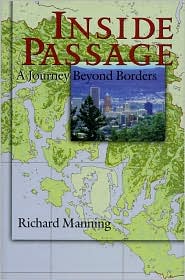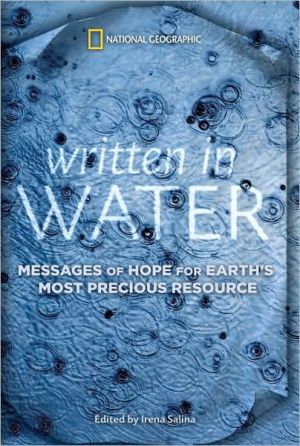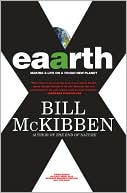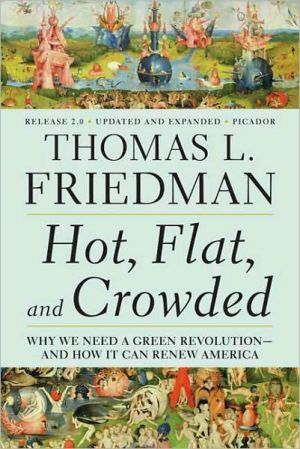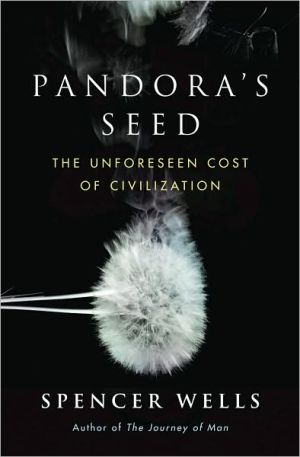Inside Passage: A Journey Beyond Borders
<p>"This book is about an idea that rests at the junction of what we call wilderness and civilization. Simply, it is a call for rethinking, and more importantly, reconstructing, our relationship with nature." -from Inside Passage.<p>Protecting land in parks, safe from human encroachment, has been a primary strategy of conservationists for the past century and a half. Yet drawing lines around an area and calling it wilderness does little to solve larger...
Search in google:
<p>"This book is about an idea that rests at the junction of what we call wilderness and civilization. Simply, it is a call for rethinking, and more importantly, reconstructing, our relationship with nature." -from Inside Passage.<p>Protecting land in parks, safe from human encroachment, has been a primary strategy of conservationists for the past century and a half. Yet drawing lines around an area and calling it wilderness does little to solve larger environmental problems. As author Richard Manning puts it in a knowingly provocative way: "Wilderness designation is not a victory, but acknowledgement of defeat.".<p>In Inside Passage, Manning takes us on a thought-provoking tour of the lands along the Pacific Northwest's Inside Passage-from southeast Alaska down through Puget Sound, and then on to the northern Oregon coast and the Columbia River system-as he explores the dichotomy between "wilderness" and "civilization" and the often disastrous effects of industrialization.<p>Through vivid description and conversations with people in the region, Manning brings new insights to the area's most pressing environmental concerns-the salmon crisis, deforestation, hydroelectric dams, urban sprawl-and examines various innovative ways they are being addressed. He details efforts to restore degraded ecosystems and to integrate economic development with environmental protection, and looks at powerful new tools such as Geographic Information Systems (GIS) that are increasingly being used to further conservation efforts.<p>Throughout, Manning focuses on the hopeful possibility that we can redesign the human enterprise to a scale more appropriate to the nature that holds it, that rather than drawing borders around nature, we might instead start placing borders on human behavior. Perhaps, he suggests, we can begin to behave in all places as if all places matter to us as much as wilderness, and, in the process, claim all of nature as our own.<p>Inside Passageis a wide-ranging and thoughtful exploration by a gifted writer, and an important work for anyone interested in the Pacific Northwest, or concerned about the future of our relationship to the natural world. Library Journal The idea of wilderness conjures up lines or boundaries on a map, separating developed areas from those free of humanity's handiwork. It is an idea debated by environmentalists and politicians. Journalist Manning (Food's Frontier) argues for a new understanding: wilderness without borders. Calling for a rethinking of humanity's relationship with nature, he argues that nature is bigger than all of humankind and cannot be controlled. From Alaska to Puget Sound, traveling by plane, boat, and kayak and on foot, Manning interviewed people who live and work in the Pacific Northwest region known as the Inside Passage to explore the ties between a regional economy and ecology. Using his own keen observation, Manning pleads for a new understanding of conservation and economic development together, not as separate entities. This thought-provoking book is a welcome addition to the environmental bookshelf.--Patricia Ann Owens, Wabash Valley Coll., Mt. Carmel, IL Copyright 2001 Cahners Business Information.
\ Library JournalThe idea of wilderness conjures up lines or boundaries on a map, separating developed areas from those free of humanity's handiwork. It is an idea debated by environmentalists and politicians. Journalist Manning (Food's Frontier) argues for a new understanding: wilderness without borders. Calling for a rethinking of humanity's relationship with nature, he argues that nature is bigger than all of humankind and cannot be controlled. From Alaska to Puget Sound, traveling by plane, boat, and kayak and on foot, Manning interviewed people who live and work in the Pacific Northwest region known as the Inside Passage to explore the ties between a regional economy and ecology. Using his own keen observation, Manning pleads for a new understanding of conservation and economic development together, not as separate entities. This thought-provoking book is a welcome addition to the environmental bookshelf.--Patricia Ann Owens, Wabash Valley Coll., Mt. Carmel, IL Copyright 2001 Cahners Business Information.\ \
